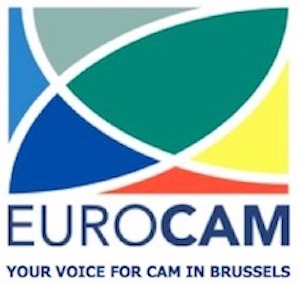WHO Global Report Traditional and Complementary Medicine 2019
EUROCAM was invited by WHO to participate in a meeting at the WHO Headquarters in Geneva on 21 May that was dedicated to the official release of the “WHO Global Report on Traditional and Complementary Medicine 2019”.
The report is the most comprehensive one on Traditional & Complementary Medicine (T&CM), with 179 of the 194 Member States officially contributing information, capturing the three phases of progress made by Member States, covering not only policy and regulation but also products, practices and practitioners of T&CM, and it is the most current and up-to-date report, based on information from most Member States across the six WHO regions.
Dr Edward Kelley, Director of the WHO Service Delivery and Safety Department gave a briefing on the report. Government delegates from Member States across all the six WHO regions – Iran, India, China, Turkey, Curaçao, Ghana and Cuba – presented overviews on the integration of T&CM into their national healthcare systems.
The report shows that 170 or 88% of all WHO Member States acknowledge the use of T&CM. A consistent upward trend in the number of Member States officially engaging with T&CM to optimally harness its potential contribution to health and well-being. However, compared to other continents, the European region lags far behind when it comes to national policies and programmes, laws or regulations, let alone national research institutes for T&CM.
Dr Tedros Adhanom Ghebreyesus, Director-General of the WHO
In the foreword of the report, he presents his position as follows:
“Traditional and Complementary Medicine (T&CM) is an important and often underestimated health resource with many applications, especially in the prevention and management of lifestyle-related chronic diseases, and in meeting the health needs of ageing populations. Many countries are seeking to expand coverage of essential health services at a time when consumer expectations for care are rising, costs are soaring, and most budgets are either stagnant or being reduced. Given the unique health challenges of the 21st century, interest in T&CM is undergoing a revival”.
“Countries aiming to integrate the best of T&CM and conventional medicine would do well to look not only at the many differences between the two systems, but also at areas where both converge to help tackle the unique health challenges of the 21st century. In an ideal world, traditional medicine would be an option offered by a well-functioning, people-centred health system that balances curative services with preventive care”.
“Our current focus is to develop norms, standards and technical documents based on reliable information and data, to support Member States in providing safe, qualified and effective T&CM services and their appropriate integration into health systems for achieving universal health coverage and the Sustainable Development Goals.
"I am very pleased to introduce the WHO global report on Traditional and Complementary Medicine 2019. I believe that this report provides valuable information for policy-makers, health professionals and the public for capitalizing on the potential contribution of T&CM to health and well-being”.
The Global Report itself can be downloaded from the WHO website.
The meeting agenda can be found here.
An overview of the activities of the Traditional, Complementary and Integrative Medicine (TCI) Unit at the WHO Headquarters can be found here.
